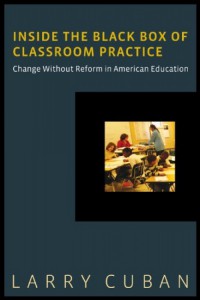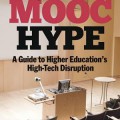 A Stanford University professor has released a new book that investigates some of the possibilities that technology brings to the future of education.
A Stanford University professor has released a new book that investigates some of the possibilities that technology brings to the future of education.
Larry Cuban, a former high school social studies teacher and professor emeritus of education at Stanford, has released a book called, “Inside the Black Box of Classroom Practice: Change Without Reform in American Education.”
Part of his predictions, according to a post on his blog, relate to Massive Open Online Courses (MOOC).
Cuban said that the “hysterical predictions” about the emergence of MOOCs “soared through cyberspace and the media.”
He pointed out that Sebastian Thrun, who is considered one of the founder’s of MOOCs, recently said in the interview that many of the courses offered by MOOC provider Udacity are “lousy product.” Thrun is CEO of the company.
In an article about Udacity on Slate, it’s pointed out that Udacity failed in its partnership with San Jose State University to teach remedial mathematics. Thrun, however, did blame part of the problem on the economic level of some of the students saying. “These were students from difficult neighborhoods, without good access to computers and with all kinds of challenges in their lives…it’s a group for which this medium is not a good fit.”
Cuban, on his blog and in his book, predicts that there will be a slower adaptation of MOOCs by state colleges and universities to make revenue-producing degree programs. But he expects elite universities to not adopt the technology long term.
Cuban is skeptical about technology revolutionizing teaching in America. While he applauds the fact that iPads and other devices have made their way into the hands of students and teachers at an unprecedented level, he also wrote that he is “skeptical of vendors’ and promoters’ claims about how these ever-changing electronic devices will transform age-graded schools and conventional teaching and learning.”
Cuban predicts that textbooks will continue to be replaced by digital books. California already allows schools to purchase digital books with state money and Florida will allow the same in 2015.
He also expects the use of flipped classrooms – in which students read the material on their own time and do what is traditionally considered “homework” together in class – to grow at the K-12 level.
However, he notes that none of the changes he sees coming “herald the disappearance of K-12 age-graded public schools or the dominant patterns of teacher-centered instruction.”





